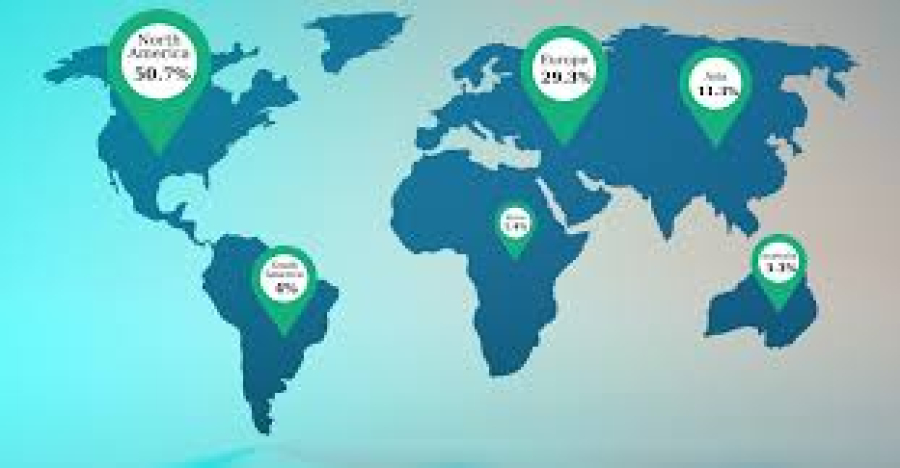Understanding the Global Freelance Economy
The global freelance economy has been growing at an unprecedented rate, offering opportunities for professionals across various industries to work remotely, set their own rates, and achieve a work-life balance that suits them. As freelancing becomes an essential part of the global workforce, understanding its impact, trends, and challenges is crucial for both freelancers and clients. In this article, we’ll explore the global freelance economy, its evolution, and how FreelancerBridge helps freelancers thrive in this rapidly changing landscape.
Understanding the Global Freelance Economy
The freelance economy is reshaping the way professionals work, offering unprecedented flexibility, opportunities, and challenges. In 2024, the freelance workforce is more diverse and widespread than ever before, spanning various sectors from technology and design to writing and marketing. Understanding the dynamics of the global freelance economy is crucial for freelancers looking to succeed, and for businesses seeking the best freelance talent. Here’s an in-depth look at the global freelance economy:
The Rise of Freelancing WorldwideFreelancing has grown exponentially in the past decade, driven by technological advancements, the shift to remote work, and the desire for greater autonomy. As more businesses embrace flexible working arrangements, freelancers now have access to a global marketplace. According to industry reports, millions of people worldwide now earn a living through freelancing, marking it as a vital component of the global workforce.
Freelance Work Across Different SectorsThe freelance economy isn’t limited to just one industry; it encompasses a wide variety of sectors. From software development and graphic design to content writing, digital marketing, and consulting, freelancers are now in high demand across multiple domains. The flexibility of freelancing allows professionals to work with international clients and diverse industries, giving them the opportunity to specialize or explore new fields.
Key Factors Driving the Global Freelance EconomySeveral factors contribute to the expansion of the freelance economy:
- Technological Advancements: Technology enables freelancers to connect with clients across borders, collaborate on projects, and complete tasks remotely.
- Globalization: Businesses are no longer limited by geography and can easily hire freelancers from around the world, enabling access to diverse talent.
- Work-Life Balance: The growing emphasis on work-life balance and flexibility has made freelancing an attractive choice for many professionals seeking autonomy.
- Demand for Specialized Skills: As industries evolve, the demand for specialized and niche skills continues to increase, leading businesses to hire freelancers with expertise in specific areas.
Freelance Marketplaces and PlatformsFreelance platforms like FreelancerBridge are central to the freelance economy, connecting skilled professionals with clients looking for specific expertise. These platforms provide a structured way for freelancers to find jobs, negotiate rates, and manage their work efficiently. FreelancerBridge stands out by offering a user-friendly interface, secure payment options, and a global network of clients and freelancers.
Challenges Faced by FreelancersWhile freelancing offers flexibility, it also presents unique challenges. Freelancers face income instability, competition, and the difficulty of maintaining a work-life balance. For many, finding consistent work can be difficult, and setting competitive rates while ensuring financial stability requires careful planning and management. Platforms like FreelancerBridge provide tools and resources to help freelancers navigate these challenges and build sustainable careers.
The Role of Clients in the Freelance EconomyClients play a crucial role in the global freelance economy by providing projects and opportunities that drive the demand for freelance work. Businesses looking to hire freelancers must understand the dynamics of the freelance market, including setting fair rates and building long-term working relationships. FreelancerBridge helps clients connect with the right freelancers by offering detailed profiles, ratings, and a transparent review system.
FreelancerBridge: Supporting the Global Freelance EconomyFreelancerBridge is at the forefront of this global shift, offering freelancers a platform where they can connect with clients, showcase their skills, and receive fair compensation for their work. The platform’s secure payment system, career resources, and client-feedback tools make it an essential part of a freelancer’s toolkit in navigating the complexities of the global freelance economy.
The Future of the Freelance EconomyThe freelance economy is poised for continued growth, with more people opting for flexible work arrangements. As technology continues to evolve, we can expect new opportunities and challenges for freelancers. For those looking to succeed in the global freelance economy, platforms like FreelancerBridge will play a key role in providing the tools and resources needed to thrive.
Conclusion:
As the freelance economy continues to expand globally, it’s important for both freelancers and clients to understand its dynamics. The rise of freelancing offers incredible opportunities for professionals to work on their own terms, but it also requires navigating a competitive marketplace. By leveraging platforms like FreelancerBridge, freelancers can gain access to a wide range of opportunities, manage their work efficiently, and build successful, sustainable careers in the global freelance economy.


 by Emily
by Emily




